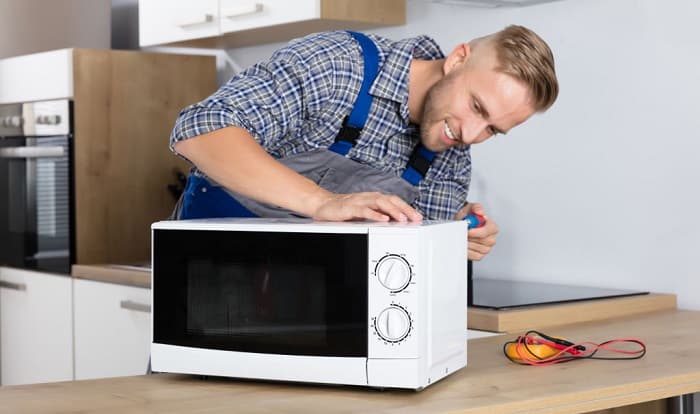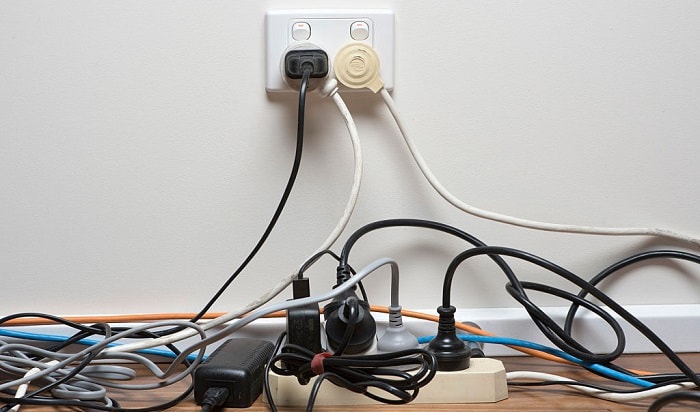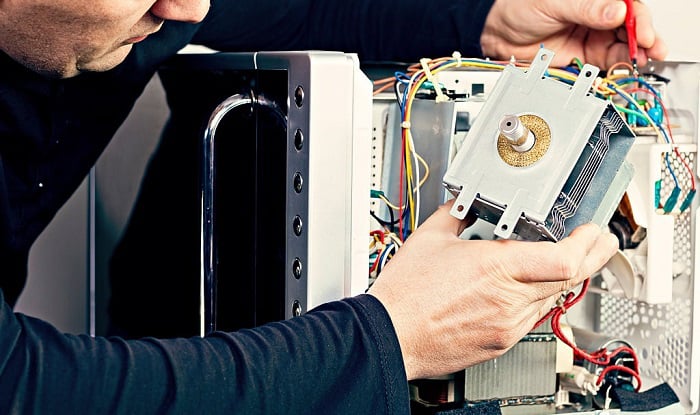There’s no shortage of homeowners who wonder, “Why does my GE microwave keep tripping the breaker?” The most common answer to this is that it’s causing an electrical overload on the circuit. This applies to almost any kind of appliance that goes above the rated ampacity of the breaker.
Do take note that when a microwave keeps tripping the breaker, there could be other less common reasons behind it. It could be due to faulty switches and capacitors or even an electrical leak. Discover them all by reading on.
Table of Contents
Electrical Overloads Remain the Usual Culprit
If your GE microwave trips the circuit breaker, it’s best to rule this problem out first. It could be as simple as having way too many appliances plugged in at a time. Your circuit breaker has a limited amperage, and once your load goes over that, the breaker trips to prevent further damage to the circuit and devices connected to it.
This is more likely if the microwave shares a circuit with other appliances. Electricians recommend dedicating an entire circuit for most appliances that require greater loads.
That being said, it’s a relatively simple problem for most. One solution to a microwave tripping the breaker frequently is to simply reduce the load by unplugging appliances that you don’t need, which share a circuit with the microwave before using it.
Other Possible Causes You Should Consider
1. Faulty components and technical errors
This is especially true if the GE microwave trips the breaker on startup. You may be dealing with faulty microswitches that cause errors, which in turn, cause the trip.
Usually, it happens like this. You set the temperature, then start it up. After a second or two of normal operation, it dies down because the breaker trips. This happens every time unless you get to the root of the problem.
The same goes for busted door switches or times when the timer becomes jammed. Check for damage on the microwave’s door safety latch’s switches. When the microwave trips the breaker when the door closes, it could be due to this issue.
For the timer, jams arise from damage to its components as well.
Other parts that may have gone out of commission, which may cause trips, include:
- Defective transformers
- Faulty capacitors
- Blown interference suppressors
At least two of these problems will cause the microwave to make a loud noise before tripping, so be on the lookout for that particular symptom.
Suppressors, in particular, may blow and cause a short circuit. Be extra mindful of them.
2. Electrical leakages
The electrical leakages can happen from a specific part, namely the magnetron. Once these leakages happen, the trips almost always follow suit.
You should be extra cautious if you think this is the issue. This kind of problem has a remarkably higher risk of electrocution. Have it properly diagnosed by a technician to ensure safety.
3. Loose wiring
While a rare cause, it’s been pointed out before that loose wiring can also be a factor.
Loose wiring that makes contact with the chassis should be ruled out because it’s been found to be connected to microwave trips breaker problems before.
4. The microwave itself is already broken.
Sometimes, a malfunctioning microwave may cause trips. This has been reported before by people who encounter scenarios like when the GE microwave trips the breaker when its door opens. You may want to check if it’s due to a faulty door switch.
NOTE: Obviously, checking for damaged components will require you to take your microwave apart. If you’re unsure of your skills in handling electrical problems, I advise you to leave it to the professionals instead.
If you think it’s a minor problem that you can solve on your own, always take extra precautions by making sure the appliance is unplugged before taking it apart. Wear rubber-insulated gloves as well.
The following video provides more information about microwave tripping circuit problems and helpful tips on how to fix insignificant issues:
It may help you save a couple of bucks, assuming your issue belongs in the said category.
Conclusion
To sum it up, check for an overload problem first since it’s the easiest to fix. Otherwise, use the possible issues why does my ge microwave keep tripping the breaker we’ve listed above as a reference. Furthermore, please keep this pointer in mind: Unless you’re sure that you won’t break the microwave or put yourself at risk of electrocution once you try to fix it, it’s best to leave it to the pros. A couple of bucks for repair may be well worth it considering the alternative scenarios.
Other helpful tips you should read:

I am Andrew Wright. With 8 years of experience designing, installing, and maintaining electrical power systems. I love my job, and I have always wanted to offer others the necessary help so they can take care of their houses.



